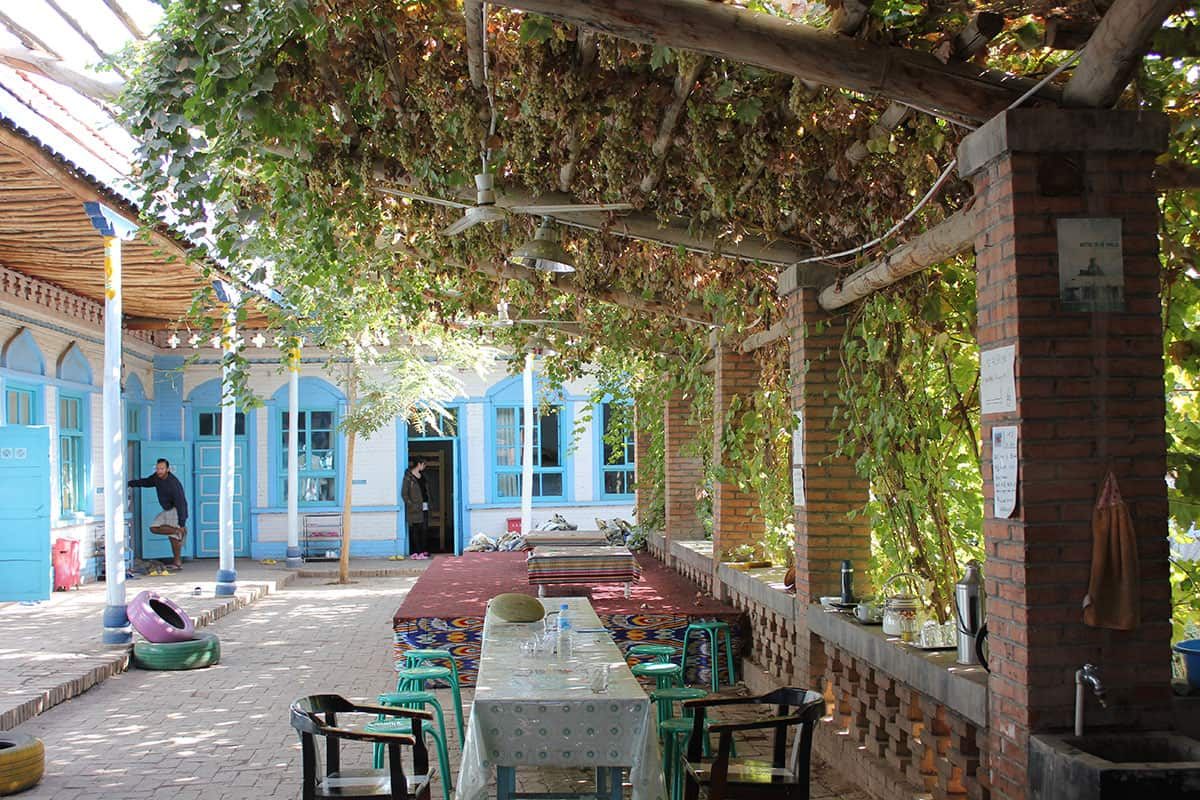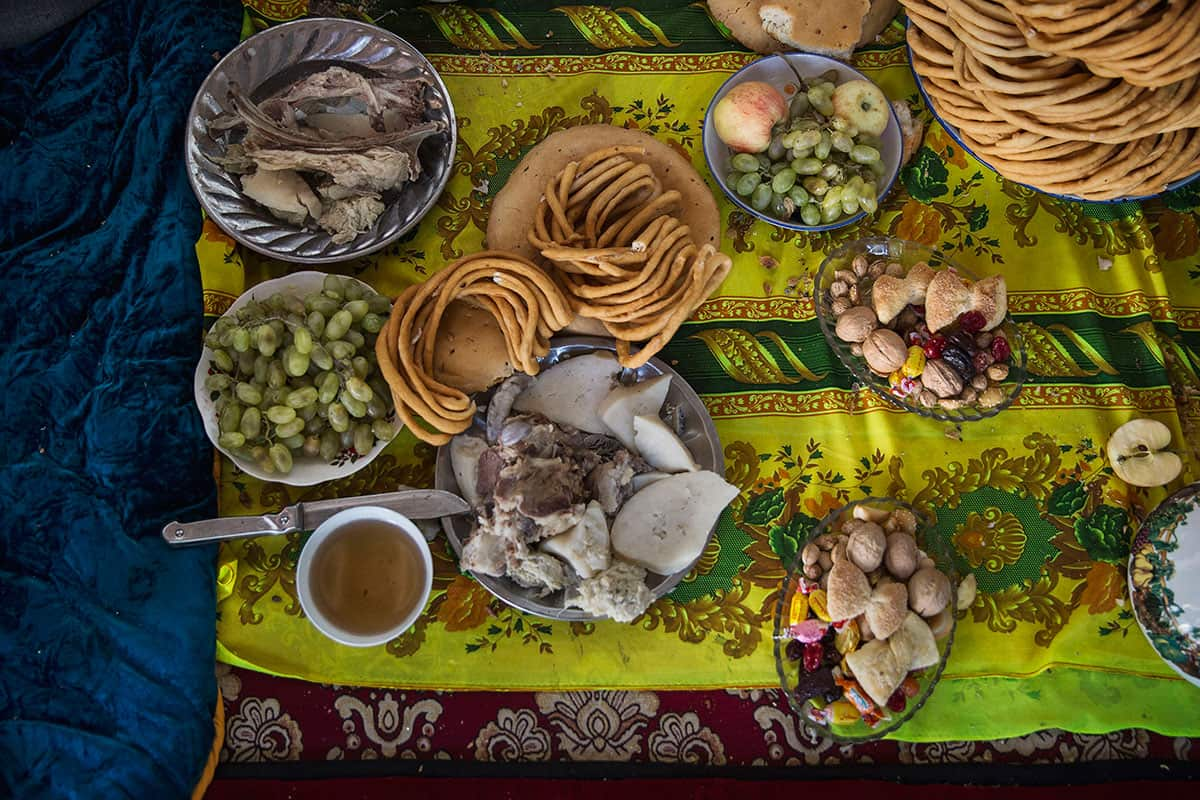When Rocky Yu opened Turpan Restaurant in Sydney’s Kensington 10 years ago, he had a problem: he couldn’t find any plastic grape vines to hang from his ceiling.
Yu’s restaurant, like many north-western Chinese eateries, is decorated with tapestries and pictures on the walls, and artificial grape vines hanging from above.
Sydney crowd favourite Chinese Noodle Restaurant, better known as ‘Grapes on the Roof’ or ‘Grape Place’, recently took down its iconic ceiling forest and loyal customers fretted - everyone knows the fake grapes make the dumplings taste better.
Hopes that they were just cleaning the vines proved unrealistic. According to the restaurant, the building manager demanded they clear the forest that covered every inch of roof, and it’s not coming back. They have since hung up a few lonely bunches of grapes in its place, because they were there for a reason.
“We represent our culture by putting the grapes on the roof,” says Yu. “Any Chinese person who sees it would know straight away we come from north-western China.”
I’d worked this out too. Yet somehow, despite the mounting evidence, it had still never occurred to me that this part of China might be covered in real grape vines until I arrived in Yu’s home city of Turpan.
Turpan, in China’s autonomous Xinjiang region, is a real life Grapes on the Roof. Footpaths are trellised with grapevines, and you walk beneath a canopy of grapes from one end of the city to the other. Open-air restaurants and backyards are shaded under the cover of vines, in beautiful dappled sunlight.

China has actually been farming grapes for more than two thousand years, the plants thought to have come across from Iran, which is much closer than Beijing to China’s western border.
Turpan seems an unlikely place for water-hungry grapevines, a desert where temperatures reach up to 55 degrees during the scorching summer months, but the low altitude, low rainfall, an ancient irrigation system and that blasting sun all combine to produce some of the sweetest grapes in the world.
“All over China people want to eat the grapes from Turpan,” says Yu. “They’re as sweet as honey.”
In Turpan’s Grape Valley, farmers grow varieties of all colours and sizes, including one called manaizi, or horse’s nipple, named for its teat-like shape. Breeze-block mud structures known as chunche, in which grapes are air-dried to make especially sweet, high-quality raisins, are dotted around the city.
Vendors sell juicy grapes on the street and market stalls are filled with raisins shaped into mounds like spices in a souk. A small percentage is turned into wine, but mostly the grapes are eaten: fresh in abundance in the summer months, and then as raisins, used in dishes such as the region’s beloved polo, or pilaf.

And while Turpan has grape vines literally growing across it, the plastic homage isn’t a poor substitute invented by the Chinese diaspora. “In our city, every house has grapes, in the backyard, in the front yard, but inside a restaurant you will still find the plastic grapes on the ceiling,” says Yu.
The purple and green plastic grapes now strung proudly across Turpan Restaurant remind Yu of home.
He eventually gave up trying to find them in Sydney shops, and imported them from China.
“The plastic grapes back home look so real that you want to eat them.”
SBS Food is a 24/7 foodie channel for all Australians, with a focus on simple, authentic and everyday food inspiration from cultures everywhere. NSW stream only. Read more about SBS Food
Have a story or comment? Contact Us

